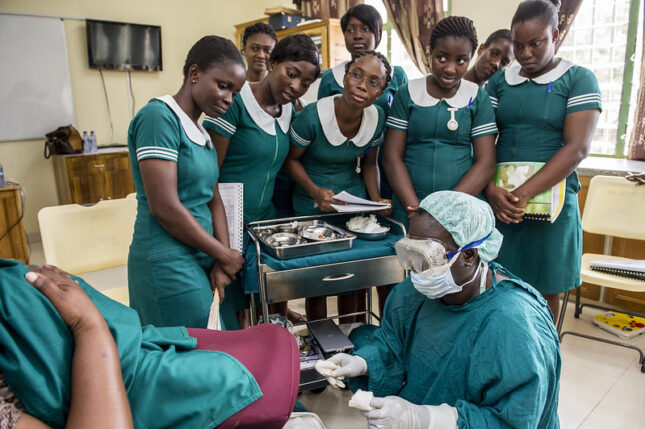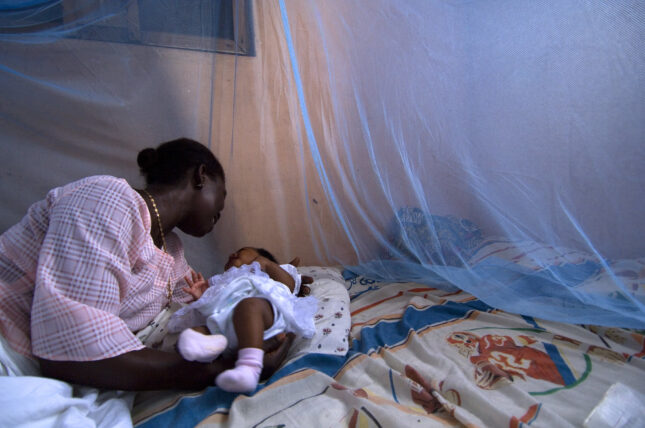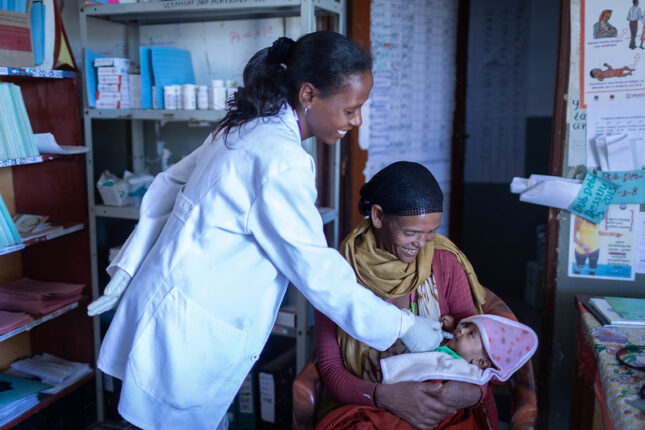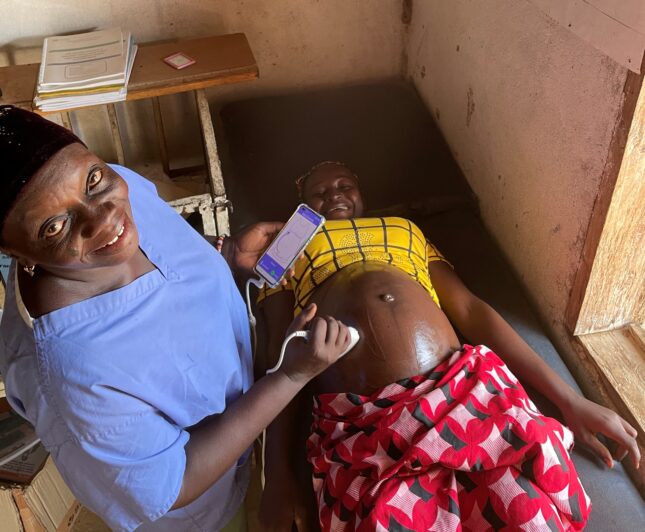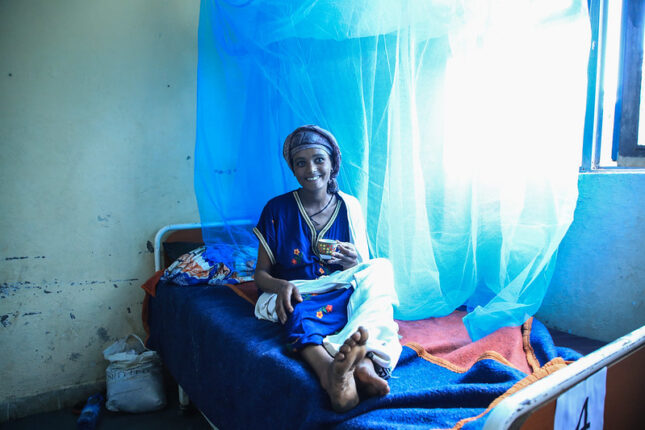-
ECSP Weekly Watch | July 8 – 12
›
A window into what we are reading at the Wilson Center’s Environmental Change and Security Program
Climate Security and Canada’s Promises to NATO (Global News)
As a founding member of the North Atlantic Treaty Organization (NATO), Canada has been influential in the integration of climate change policy with the alliance’s mission. It supported the development of NATO’s Climate Change and Security Action Plan aligning with the alliance’s core tasks of deterrence and defense, crisis prevention and management, and cooperative security. Following the Canadian proposal 2021, Global Affairs Canada and the Department of National Defense jointly lead NATO’s Climate Change and Security Centre of Excellence (CCASCOE) to research and identify best practices to address climate change and security-related challenges.
-
Q&A: Midwives as a Vital Climate Solution
›Dot-Mom // Guest Contributor // Q&A // May 3, 2024 // By Esther Bander, Rosemary Ngougu, Eugenia Mensah, Angeline Houman & Pandora Hardtman
May 5th is the International Day of the Midwife. This year’s theme, “Midwives: A Vital Climate Solution,” acknowledges the role that midwives play by delivering environmentally sustainable health services, adapting health systems to climate change, and as first responders when climate-related disasters occur. Empowering a resilient health workforce with midwives as first contacts for maternal health care can improve universal health coverage through reductions in environmental impact, as well as more efficient, less costly health systems, and stronger local economies.
-
ECSP Weekly Watch: April 15 – 19
›
UNFPA’s State of World Population 2024 Report Highlights SRHR Inequalities (UNFPA)
Over the last 30 years, the world has made immense progress in improving sexual and reproductive health and rights (SRHR) for women and girls around the world. Since 1994, when governments agreed that SRHR was a cornerstone of international development at the Cairo International Conference on Population, rates of unintended pregnancies have fallen 20%, 162 countries have adopted anti-domestic violence laws, and maternal deaths have decreased by 34%.
-
NEW Global Health and Gender Policy Brief: Malaria and Most Vulnerable Populations
›
Malaria is an immense global health challenge. In 2022, there were 249 million malaria cases, an increase of 5 million as compared to 2021, leading to 608,000 malaria deaths in 85 countries. Yet while these numbers increase, investment and attention to malaria in the past decade has stagnated—and even decreased in areas. Notably, the total spending to eradicate malaria in 2022 was $4.1 billion USD – just over half of the $7.8 billion USD needed to stay on track to reduce new malaria infections and mortality rates by 90% by 2030.
-
From Sunset to a New Dawn: Sustaining Civil Society’s Voice on Safe Motherhood
›
Maternal mortality continues to be one of the scourges in global health. The fact that women die as part of bringing life is an indictment against the overall status of women around the world, and underscores the failure to prioritize women, mothers, and children. Efforts to draw attention to the causes of maternal death and the solutions to maternal mortality abound, but they fail to get enough attention from the decisionmakers who establish health priorities and allocate resources that could actually make a difference.
-
Closing the Women’s Health Gap Report: Much Needed Recognition for Endometriosis and Menopause
› Women across the globe spend 25% more time in poor health and in varying degrees of disability than men, according to a new 2024 report by the World Economic Forum and the McKinsey Health Institute. Closing the Women’s Health Gap: A $1 Trillion Opportunity to Improve Lives and Economies addresses the root causes of the women’s health gap that if addressed could improve the lives of millions of women and potentially boost the global economy by $1 trillion annually by 2040.
Women across the globe spend 25% more time in poor health and in varying degrees of disability than men, according to a new 2024 report by the World Economic Forum and the McKinsey Health Institute. Closing the Women’s Health Gap: A $1 Trillion Opportunity to Improve Lives and Economies addresses the root causes of the women’s health gap that if addressed could improve the lives of millions of women and potentially boost the global economy by $1 trillion annually by 2040. -
BabyChecker: Bridging the Gap in Maternal Care, One Scan at a Time
›
We live in a world marred by healthcare disparities. Pregnancy-related deaths and disabilities remain unacceptably high. Nearly 800 women die each day due to preventable causes related to pregnancy and childbirth, and scores more suffer from lasting disabilities. Shockingly, 90% of these preventable deaths occur in low-resource settings.
-
Can Global Maternal Health Investments Help Eradicate Malaria?
›
The last two decades saw significant gains in reducing the incidence of malaria, but can we be doing even more to eradicate this disease? In early January 2024, a New York Times op-ed argued that millions were dying needlessly as tools to defeat malaria were within reach.
Showing posts from category newborn and child health.


